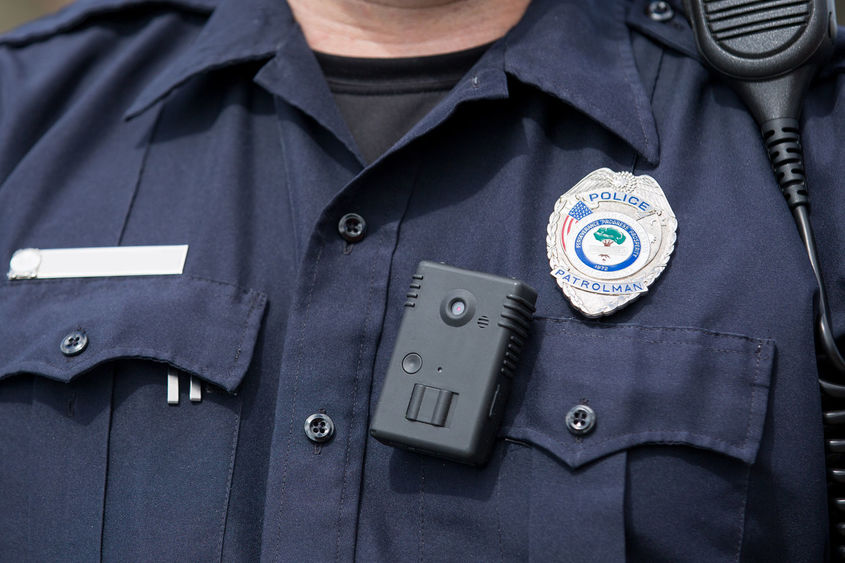
HARRISBURG, Pa. — Data from a recent survey by the Center for Survey Research at Penn State Harrisburg shows how Pennsylvanians view key policing topics, including what defines police legitimacy and whether or not police wearing body cameras makes us feel safer.
Recently, high profile cases of alleged police brutality and police shootings of minorities have raised questions about a “legitimacy crisis” in policing. Penn State Harrisburg researcher, Jennifer Gibbs, assistant professor of criminal justice in the college’s School of Public Affairs, asserted that before the question of a legitimacy crisis can be raised, what “police legitimacy” means to citizens must first be determined.
Gibbs explains that various disciplines define the word differently. Political scientists define legitimacy in terms of legality or lawfulness – whether the police follow the law; in terms of morality – whether the customs of various social groups are respected; and through acts of consent – where the citizenry actively supports the work of police through actions like reporting crime, she said. Criminologists define police legitimacy as trust, voluntary obligation to obey the law and police directives, procedural justice or fair treatment, outcome fairness, lawfulness, and effectiveness.
“Most surveys of public perceptions of police legitimacy use similar questions with a set of answers from which the person taking the survey must choose. From these questions, criminologists typically conclude that legitimacy is limited to trust and willingness to obey. But few have directly asked citizens how they define police legitimacy, without the researcher limiting citizens to certain questions,” said Gibbs. Gibbs and the Center for Survey Research asked this question of Pennsylvanians.
A random sample of 601 people was interviewed through the Penn State Poll, an omnibus telephone survey conducted by the center each year. Four hundred and twenty-three respondents answered the question, “Thinking about the police, what does ‘legitimacy’ mean to you?” (See full research brief here).
Key themes of respondents definitions tended to fall in some of the categories used by academics, Gibbs said, including integrity/morality; lawfulness; fairness; effectiveness; and adequate training/certified.
Overall, the majority of respondents defined police legitimacy in terms of integrity or morality, followed by lawfulness, and fairness.
The most common definitions varied by racial and ethnic groups. While most definitions were categorized as integrity/morality or lawfulness for whites, non-white respondents most often defined police legitimacy as integrity/morality or fairness. The sample was predominantly white.
Significant differences also emerged among age groups. All ages primarily defined police legitimacy in terms of integrity/morality. While the oldest group (55 years of age or older) also defined police legitimacy as lawfulness, the younger groups (18-34 years of age and 35-54 years of age) were split between that definition, fairness, and effectiveness.
“The primary implication of these findings is that police and academicians alike should take heed of the public voice,” Gibbs said. “Police should consider ways to promote public perception of officer integrity, lawfulness and fairness, and include various communities in discussions of how to do so.”
She added that scholars studying police legitimacy may want to rethink some of the classic conceptualizations and incorporate new categories, like training and certification. Future research may want to determine what affects public definitions of police legitimacy and whether citizens’ definitions of police legitimacy affect their attitudes and actions toward police.
As part of the Penn State Poll, researchers also sought to gauge Pennsylvania residents’ feelings on police body-worn cameras (BWC).
“Politicians, the media, and public interest groups have called for greater police accountability through implementation of police body-worn cameras in the wake of police shootings of minority citizens,” Gibbs said. “Parts of Pennsylvania have embraced BWC; the Pittsburgh City Council, for example, offered preliminary support for a $1.5 million contract with Taser International for 500 cameras, which would cover 75 percent of the police force.”
Gibbs added that despite this support, there are some who have voiced concerns over citizen privacy.
“The Pennsylvania state legislature currently is reviewing the state wiretap laws, which, as they stand, would prohibit police from videotaping inside a citizen’s residence,” Gibbs said. “Other issues with this technology blocking police accountability include who has access to the recordings; whether the recordings would be released to the public, to whom, and when; for how long the recordings are stored and by whom (the police agency or a private contractor); whether police have discretion to turn the cameras off; whether citizens’ requests to stop the recording will be upheld by officers; and technology malfunctions.
“As BWCs are implemented by police agencies across the state, gauging public perception of this new surveillance technology will be a fruitful avenue for exploration,” Gibbs said.
A total of 579 Pennsylvanians responded to a question on the Penn State Poll asking how much they agreed with the statement, “I would feel safer if a police officer was wearing a video camera.” Most of the sample — 88.1 percent — agreed that they would feel safer, but, again, views differed among social groups. (See full research brief here).
Black/African-American respondents were more likely to say that they strongly agree with the statement than were white respondents and those of another race. Differences were also reported by gender, education, income level and political affiliation.
“The overwhelming support by Black and African-American respondents is unsurprising, given that the nationwide call for body cameras stems from concerns over highly publicized incidents of police use of force on Black and African-American citizens,” Gibbs said.
(Note: The Penn State Harrisburg Center for Survey Research and School of Public Affairs will host a panel discussion titled “Are Police Worn Body Cameras Enough?” on March 14 at 11:30 a.m. on campus in the Olmsted Building Gallery Lounge.)


